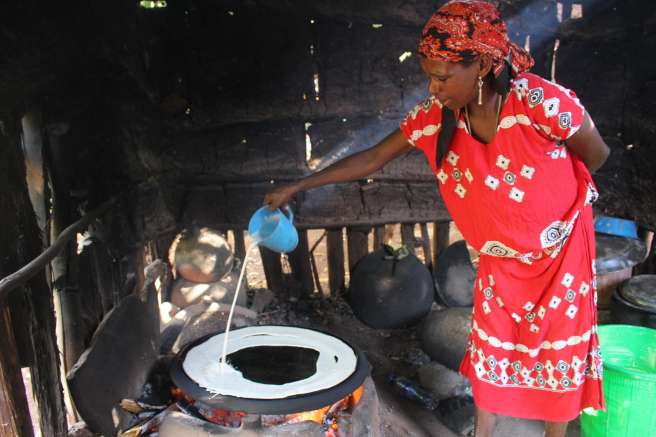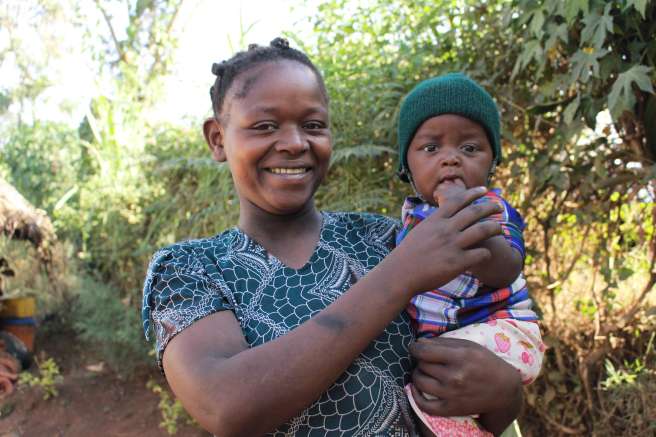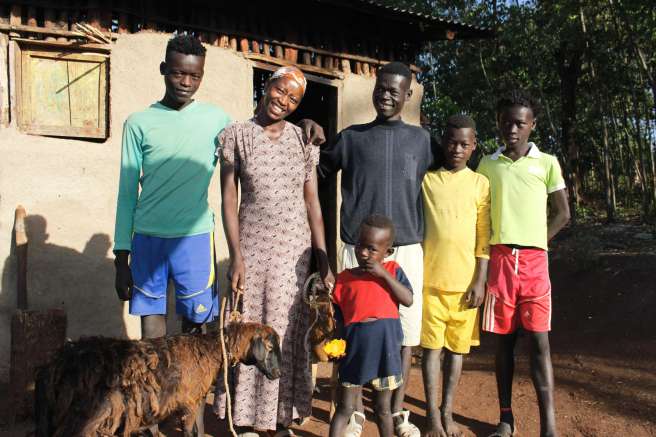Deforestation, a changing climate and the inefficiency of traditional cooking methods are some of the drivers for a growing market for improved cook stoves in South Omo, Ethiopia. Three women, Zeritu Ganma, 35, Amarech Tariku, 23, and Banchi Aseffa, 25, from South Ari woreda share their experience of selling these stoves and the difference it is making to them personally and to their community.
Image credits and information

Before the project, we could only cover our food. What we had been producing from farming was too small to sell to cover important things we needed in our lives.
In 2018, Zeritu alongside 692 other women joined the EU funded Breaking the Barriers programme to form 58 businesses producing and selling improved cook stoves and solar energy products in southern Ethiopia.
Christian Aid alongside our partner Women Empowerment Action works closely with these groups providing business advice, training in making improved cook stoves and supporting the groups to access low interest loans.
Zeritu’s women’s group to build awareness and a market for the stoves started by trialling the stoves themselves and then promoting them to other self-help groups. They then shared the benefits with the wider community, for example, the need for less fuel, cleaner and less smoky kitchens, and the reduced risk of accidents from cooking over an open fire. Zeritu says that they are so successful that they have sold all their stock.
Through the sales of the stoves, Zeritu now supports her family with her savings. She can send her children to school, and she has started her injera making business.
Together, we are supporting our children to grow well.

We leave home early in the morning and come back after midday. Sometimes you can’t easily find the firewood. It is becoming less abundant.
For the last three to four years, she has also experienced poor harvests and like others she is reliant on buying crops that she currently cannot grow.
As a member of the Melkam women’s group, Amarech sells improved cook stoves produced by another, or the women’s groups organised through this programme. Her profits have not only supported her to feed her family well during bad harvest seasons, but she now has more free time to spend with her children.
With her new fuel-efficient stove, Amarech now only has to collect firewood once or twice a week. The stove also produces less smoke, which she believes is improving the health of her family.
People are interested in our product. Some families are buying up to three new improved stoves from us for a single household.

Banchi is the secretary for the Berhan Improved Cook Stove Marketing Enterprise.
Before selling improved cook stoves, Banchi’s family made only a small amount of money from their crops. She also struggled like other women to address power imbalances within her family, as any money made was controlled by her husband.
Through this project, Banchi is beginning to see many changes in her family and within the community. Not only have members of her enterprise seen improvements to their health and income, but the women have challenged local perceptions of women in business and what they can achieve.
The group have successfully acquired land from local government to expand their businesses, which is extremely important as they now have a valuable asset and are recognised within their community. They also continue to advocate for women’s rights in the home and within the wider community.
Let alone defending my rights, I fight for the rights of all women.
Future plans
Moving forward the women’s groups have plans of their own. Working through the Women’s Affairs Office they hope to reach all households with their new improved stoves. They are also considering alternative businesses based on community needs, including starting solar energy businesses to meet the power shortages in their area.
Breaking the Barriers
The Breaking the Barriers programme aims to increase rural women’s jobs and income in the sustainable energy sector, improve working and living conditions, promote gender equality, and strengthen women’s social status.
We are supporting women to create and own Women’s Led Sustainable Energy Enterprises in some of the poorest and remote off-grid communities.
Find out more


